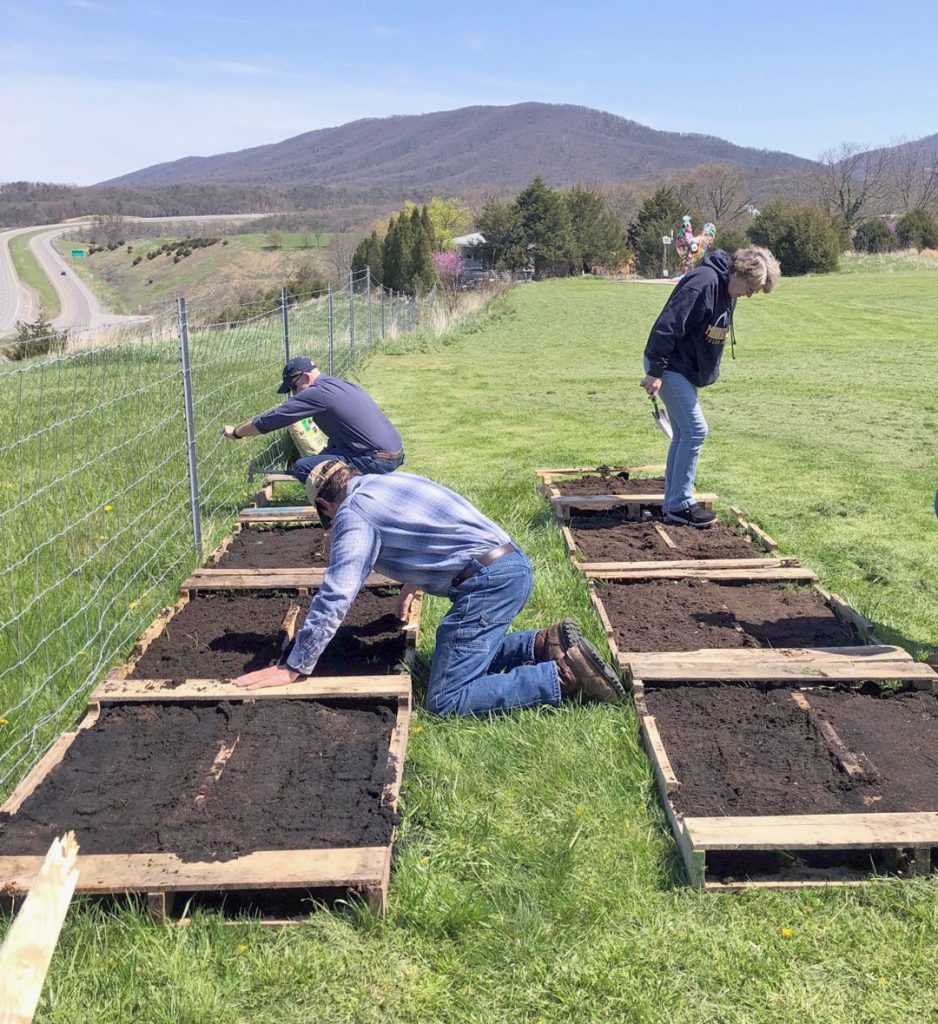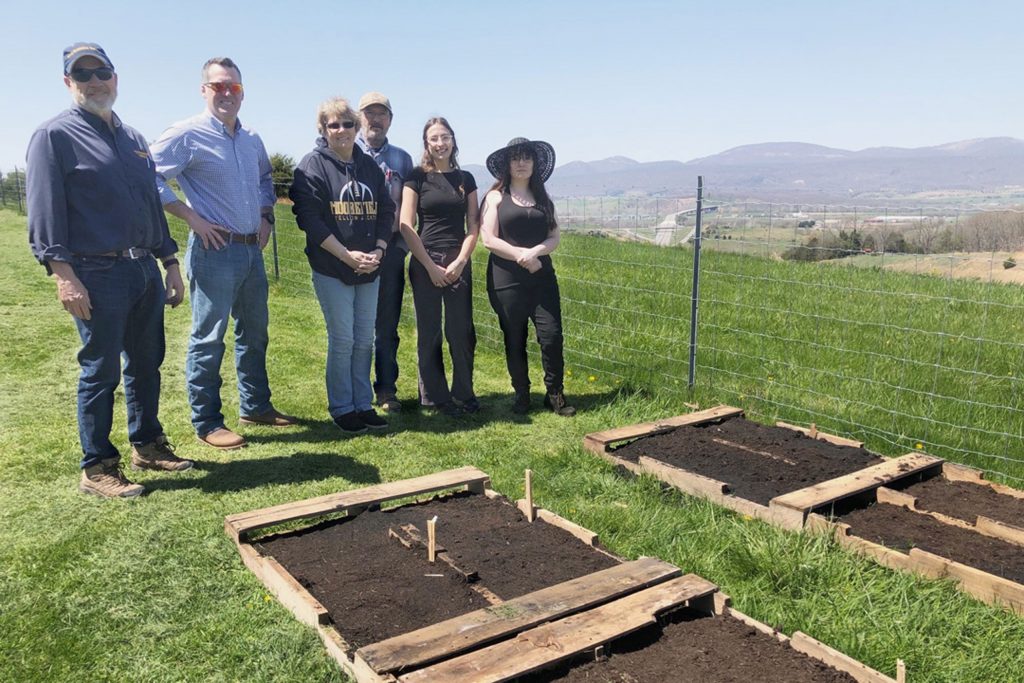MOOREFIELD, W.Va. — Eastern West Virginia Community and Technical College hosted a hands-on pollinator seminar on April 20, led by West Virginia University Extension team members Dr. Dave McGill, forest resource management specialist, and Dr. Seldon Owen, wildlife specialist.
McGill and Owen explained the benefits of biochar and pollinator gardens for the seminar, which was open to Eastern students, staff, and community members. Topics covered the importance of pollinators and their role in creating and maintaining habitats, as well as their links to increased crop yield and the important of that role in an agricultural hub such as the South Branch Valley.
Pollinators include butterflies, bees, birds, small mammals, and a wide variety of insects. McGill and Owen focused part of the presentation on butterflies, particularly monarchs, and the important role played by butterflies in sustaining ecosystems, as well as likely severe environmental impacts due to a steep decline in monarch populations.
To close the day’s activities, a pollinator garden was created on the lawn behind Eastern, which overlooks U.S. 48. The The 8-by-16-feet raised-bed garden was planted with a variety of naturally occurring pollinator plants to attract known pollinators, especially monarch butterflies. Plants included bergamot, coneflower, milkweed, field thistle, black-eyed susan, wingstem, asters, lobelia, foxglove, mullein, and butterfly bushes.

The pollinator seminar is one of several components of the MASbio Project, a collaboration between Eastern and WVU. MASbio is an abbreviation for the Mid-Atlantic Sustainable Biomass for Value-added Products Consortium, which is dedicated to developing and implementing regional biomass for value-added products to grow the rural bioeconomy in economically and environmentally sustainable ways.
The consortium represents a regional network of supporters includes a collection of universities, industry partners, entrepreneurs, and governmental organizations, including the U.S. Department of Agriculture and the National Institute of Food and Agriculture (NIFA). Funding support for MASbio comes from USDA NIFA Grant 2020-68012-31881.
Biomass can best be described as a renewable organic material that comes from plants and animals, wood residue timber harvesting, agricultural crops, and waste. Value-added byproducts made from these sources of biomass include bio-adhesives, biochemicals, resins for 3D printing, carbon products such as biochar, and bio-nanomaterials, such as lithium batteries.

The project has access to several resources in the Mid-Atlantic region, including 10 million acres of abandoned and surface-mined land that can be restored by biomass crops, such as fast-growing willow and switchgrass feedstock crops, and pollinator plantings. Additionally, 8 million dry tons of forest residue from forest thinning and timber harvesting are produced annually in this region, and MASbio wants to facilitate use of these waste products to create environmentally sustainable and useful bioproducts. For more information about the MASbio Project and upcoming consortium events, contact MASbio Coordinator Maya Paul at maya.paul@easternwv.edu.
Categories:
